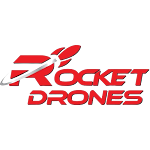Drone racing is not just about the thrill of flying fast. It’s an engaging way for students to learn valuable lessons in teamwork and collaboration. When schools introduce drone-related activities, they open up opportunities for students to work together, solve problems, and develop communication skills. These programs often involve the Drone Curriculum, which teaches students how to operate drones and the science and technology behind them. By integrating these programs into the classroom, students gain insights into real-world applications and the mechanics of flight.. In this article, we’ll discuss how drone racing can build essential teamwork skills among students.
The Role of Teamwork in Drone Racing
Drone racing requires more than just one person controlling a drone; it necessitates a team effort. Each member contributes to planning, building, and flying the drones. Students learn to communicate clearly and delegate tasks effectively, which are critical skills in any group setting. This activity helps students appreciate different perspectives and combine their strengths to achieve a common goal. Moreover, as they engage in these activities, they build a sense of community and support among their peers, fostering a positive learning environment.
Building Skills with Hands-On Learning
Using Drone STEM Kits, students engage in practical learning. They assemble drones, understand circuitry, and tweak their machines for better performance. This hands-on approach not only makes learning fun but also encourages students to work together, sharing knowledge and helping each other troubleshoot issues. It’s a great way for students to see the immediate impact of their collaboration. As they progress, they develop technical skills that are crucial in today’s technology-driven world, enhancing their future career opportunities.
The Impact of Competitive Spirit
Drone Racing for Schools introduces a healthy competitive spirit among students. This competition pushes them to work collaboratively to refine their strategies and improve their skills. It’s not just about winning; it’s about how well students can work as a team to overcome challenges and learn from their experiences. This environment encourages resilience and perseverance, qualities that are essential for personal and academic growth.
Integrating Curriculum with Real-World Skills
The Drone Curriculum is designed to integrate seamlessly with STEM education, providing students with a comprehensive learning experience that includes math, physics, and computer science. This curriculum ensures that students are not only learning to pilot drones but also understanding the scientific principles that allow these devices to fly. This broader educational approach helps students link their drone racing experiences with real-world applications and future career opportunities. It inspires curiosity and a love for learning, making education both enjoyable and impactful.
Closing Note
As drone racing becomes more popular in schools, the benefits extend beyond just technical skills. It’s about preparing students for a future where teamwork and collaboration are key to success. Companies like Rocket Drones are at the forefront of providing educational resources that support this dynamic way of learning. By engaging with such innovative tools, students not only become better team players but also better prepared for the technological advancements of tomorrow. They emerge as leaders who value teamwork and are equipped with the skills to thrive in diverse and challenging environments.



